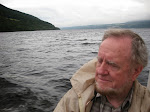Liberal voters would, on the votes
cast in 2011, have elected 65 or 66 of the 338 MPs to be elected in 2015. About
double the 34 MPs actually elected in 2011. That’s true whether Canada had the
proportional representation model recommended by the Law Commission of Canada,
or the moderate model recommended by the Jenkins Commission,
But what about those 34 MPs? In every
party, the problem the caucus usually has with proportional representation is a
simple, selfish, one. Sure, it will help us in regions where we did badly. But in
our own stronghold regions, it will help other parties. What will happen to my
seat?
Caucus
opposition stopped Pierre Trudeau
Opposition in a caucus to proportional representation is an old story.
In 1980 Pierre Trudeau's problem with western under-representation in his government was extreme: he had
only two MPs from the four western provinces, both from Manitoba. Trudeau would
have had sixteen more western MPs with proportional representation. In its 1980
Speech from the Throne, Trudeau’s newly reelected Liberal government promised
to appoint a committee to study the electoral system. One of the very few promises he could
not keep.
Opposition among Liberal
MPs was intense. (Ironically, René Lévesque had the identical problem as Quebec
premier at the same time: after being re-elected in 1980, Lévesque started to
implement proportional representation for Quebec, and got part-way down the
road when his caucus vetoed it.
That was a time when all politicians understood the problem. Joe Clark had won
a “wrong-winner” election in 1979 with fewer votes than the Liberals. In
Quebec, Parti Quebecois voters had been cheated in the elections of 1970 and
1973.)
So here’s the practical question. Who
would those 65 or 66 Liberal MPs have been? And would any of the 34 actually
elected have lost out?
Who
would have won?
First, we would still have 213 (or at least 204) local MPs across Canada, from larger ridings, and most sitting MPs would still have won a local seat.
As to the new 32 regional MPs, both of these models are for personal proportional representation. So we can’t really
know for sure who they would have been, because voters can vote for the
candidate they want, both for local MP and for regional “top-up” MP.
But we can assume that those
candidates who got the most votes locally in 2011 would likely have gotten the
most votes regionally. Note, however, that 90% of voters say they would elect
more women MPs if given the choice. So we can also assume that women candidates
would have done better than they did in 2011.
In Ontario maybe 22 more Liberal MPs
would have been elected, including regions where Liberal voters were left
voiceless.
Two in Hamilton-Niagara: maybe Hamilton city
councillor, home builder and environmentalist Dave Braden, and Niagara Falls lawyer Bev Hodgson,
or former Ontario minister Marie Bountrogianni or former City of St. Catharines councillor Andrew
Gill.
Four in Peel: maybe former MPs Bonnie Crombie,
Andrew Kania, Paul Szabo and Navdeep Bains or Ontario minister Peter Fonseca?
One in Halton: Connie Laurin-Bowie or Max Khan? One
in Durham Region: Mark Holland or Dan McTeague?
Two in Waterloo-Brant-Haldimand: Andrew Telegdi and
Karen Redman? One in London—Perth—Huron: Glen Pearson or Doug Ferguson? One in
Windsor-Sarnia: Matt Daudlin or Gayle Stucke? Two from Northern Ontario: Anthony
Rota and Roger Valley or Carol Hartman or Ken Boshcoff?
Three more from Toronto: maybe Martha Hall Findlay, Michael Ignatieff,
and Yasmin Ratansi or Rob Oliphant or
Maria Minna? Two more from York Region: Bryon Wilfert and Mario Ferri or Karen
Mock?
One more from Ottawa: David Bertschi,
Anita Vandenbeld or Julie Bourgeois? One more from Kingston—Peterborough: Kim Rudd or Betsy McGregor? One more in
Barrie--Guelph--Owen Sound: Steve Clarke or Kimberley Love?
Would any of Ontario’s actual 11 Liberal MPs have
lost? Highly unlikely.
In the West maybe eight more Liberal
MPs would have been elected.
In Vancouver, maybe Sukh Dhaliwal or Pam
Dhanoa, Taleeb Noormohamed or Dan Veniez, maybe Ujjal Dosanjh. In Calgary, maybe
Cam Stewart or Janice Kinch or Jennifer Pollock. In Edmonton, likely Mary MacDonald,
whose predecessor Anne McLellan has supported PR. In southern Alberta, maybe Norm
Boucher; maybe Karen Young in northern Alberta. In Manitoba, maybe Anita
Neville or Terry Duguid. And that’s when a lot of Liberals stayed home in 2011.
The current four Liberal MPs should all remain.
In Quebec maybe four more Liberal MPs
would have been elected.
On the south shore, maybe former MP Alexandra
Mendès. In Estrie—Centre-du-Québec—Mauricie, maybe former minister Denis Paradis,
or Trois-Rivières former MNA and school principal Francine Gaudet. In Quebec City—Saguenay—Côte-Nord, maybe Quebec
City lawyer and twice-candidate Jean Beaupré, or former Director of Government relations at
Université Laval Martine Gaudreault. In Chaudière-Appalaches—Gaspésie, likely
former MNA and lawyer Nancy Charest. In Outaouais—Abitibi—Nord, maybe Marcel
Proulx or Steve MacKinnon or Cindy
Duncan McMillan. On Montreal Island, one fewer, but of course, on the votes cast in 2008 it would
have been two more.
In Atlantic Canada one fewer Liberal
MP would have been elected. One more in New Brunswick: maybe former MP Brian
Murphy. One fewer in Nova Scotia and PEI.
So at most three of the sitting MPs,
on the votes cast in 2011, could have lost. While about 32 more would have won.

No comments:
Post a Comment